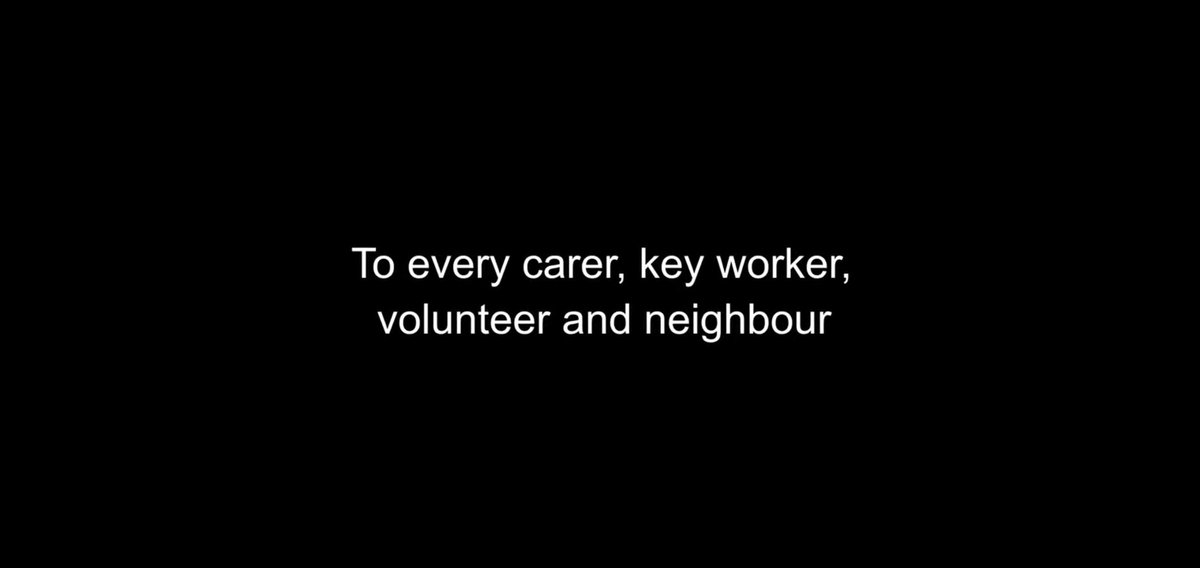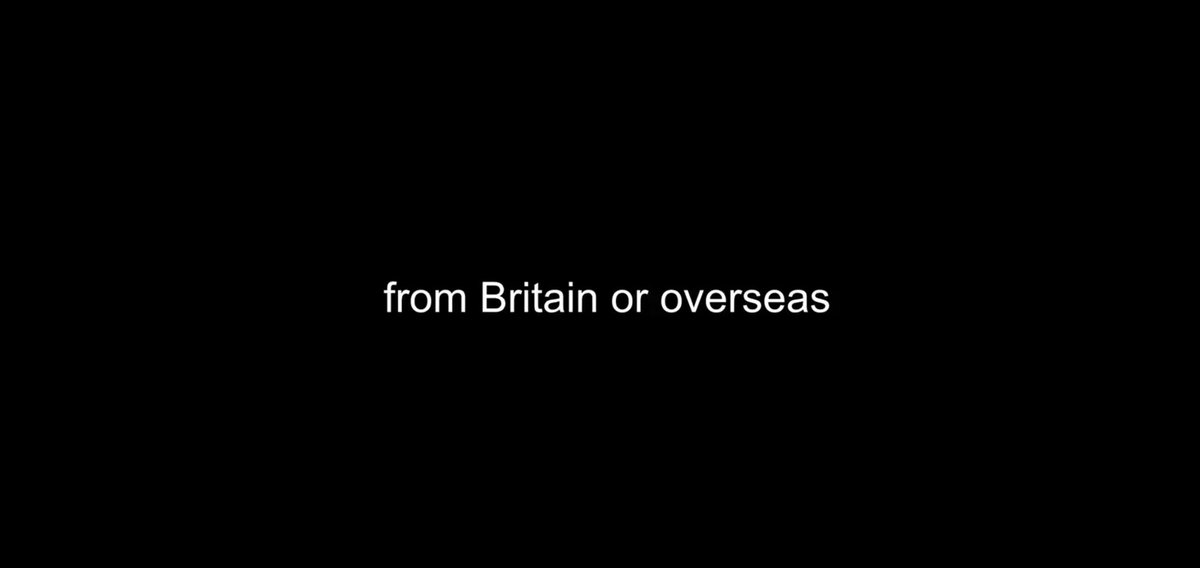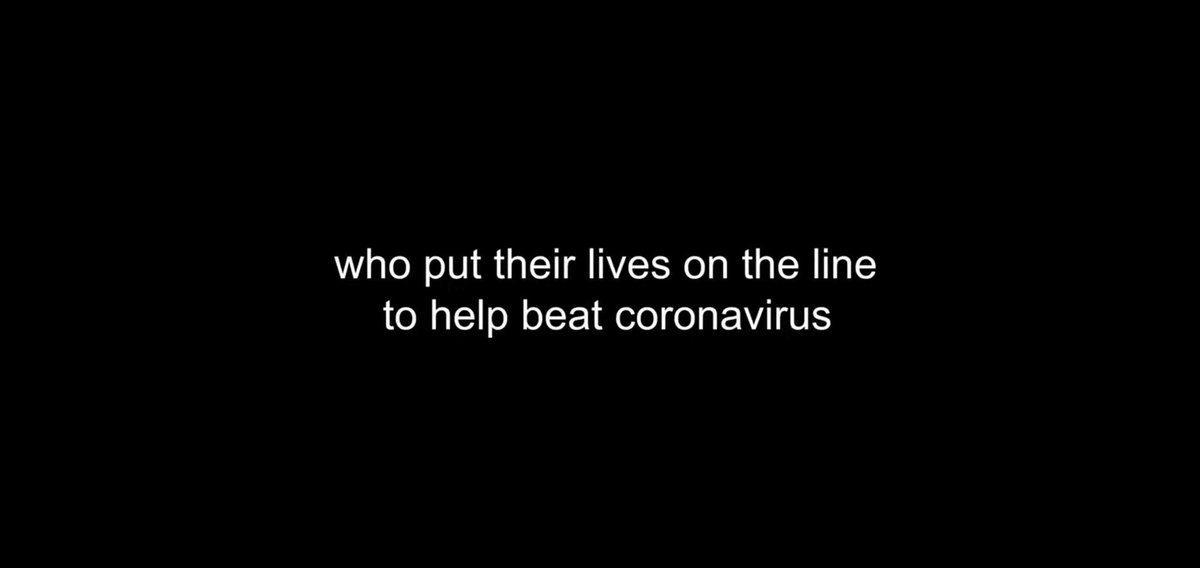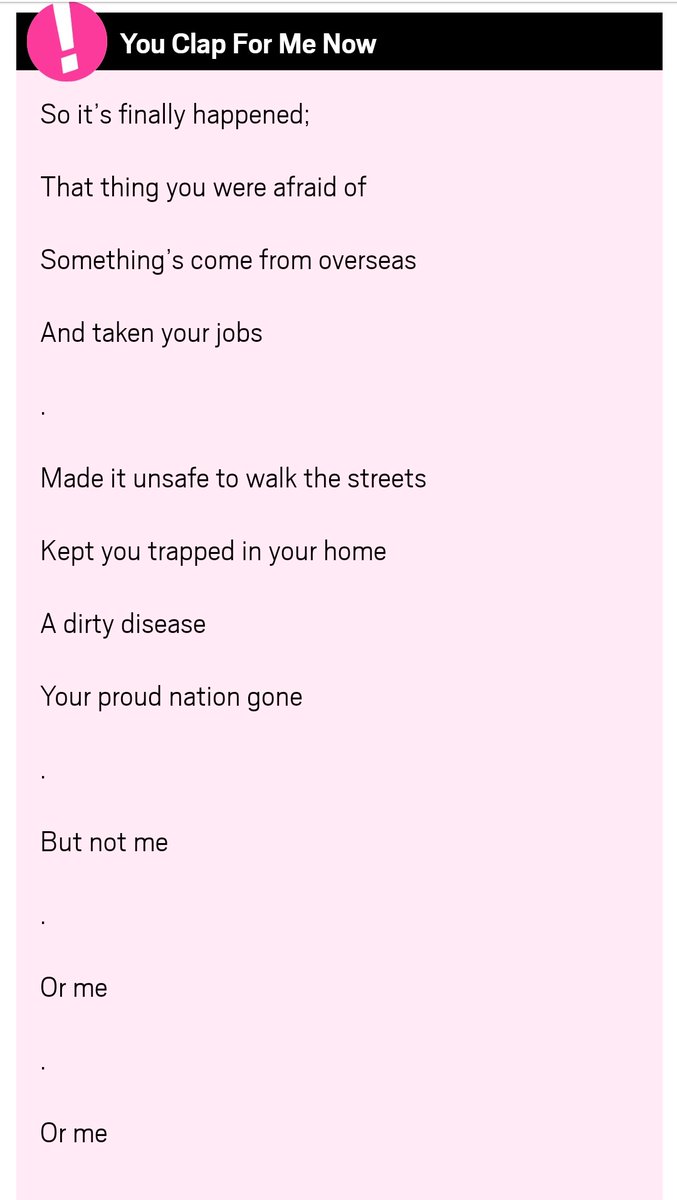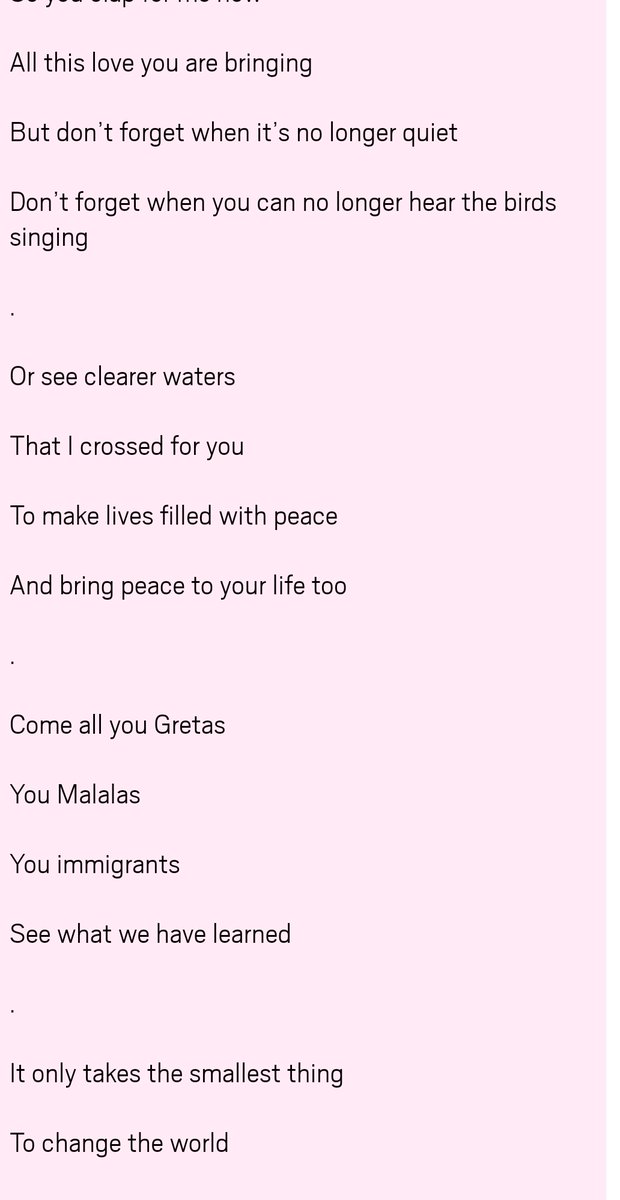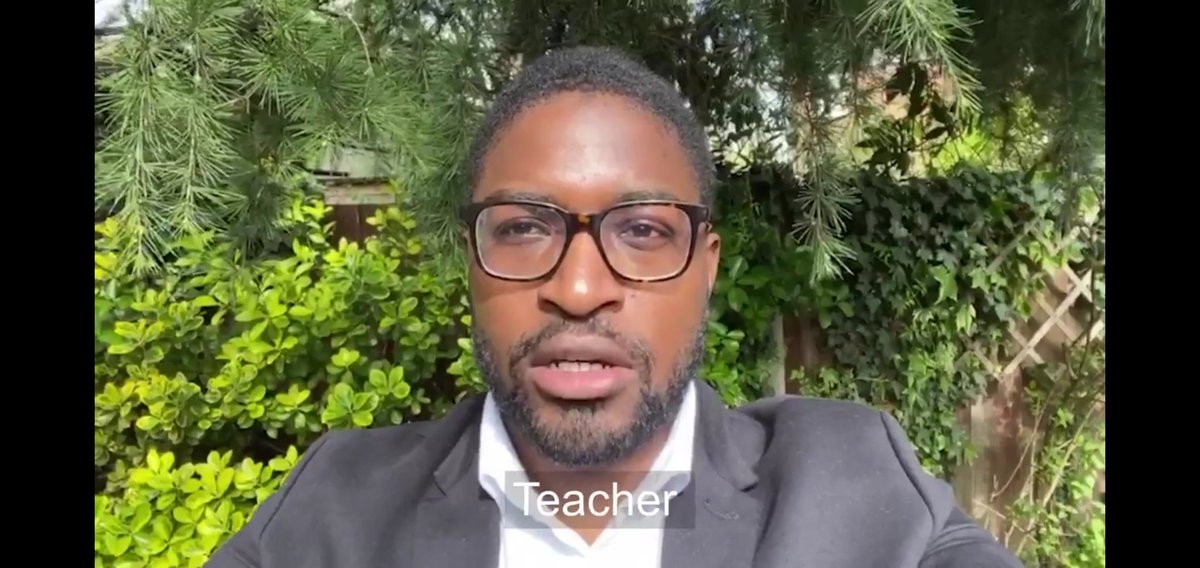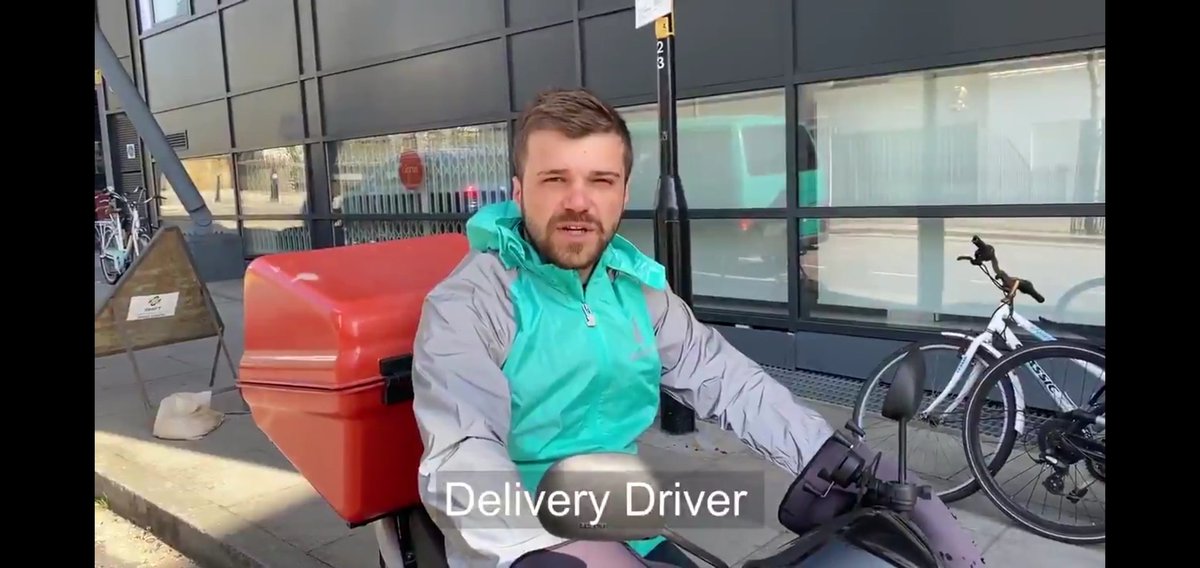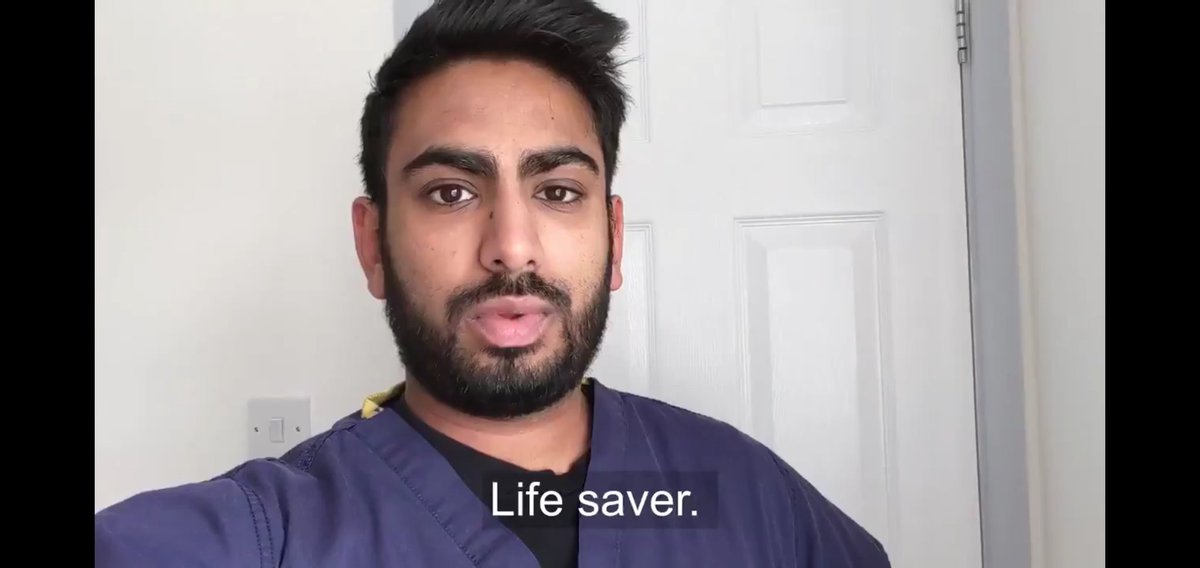The author says he hoped the & #39;You Clap For Me Now& #39; film would convey a unifying message. It seems to me a missed opportunity to achieve that intention, despite having several elements that could have done this. https://twitter.com/MetroUK/status/1250363238065278978">https://twitter.com/MetroUK/s...
One interesting thing about it is that the tone and message changes about 1m 30s in. These captions at the end are a message with very broad appeal - the #clapforcarers message. But this hasn& #39;t been the message or tone of the film
That message is "thank you - from all of us, to all of you, whether you are from Britain or from around the world, for everything you are doing for all of us (together)". Which is a different message from the "so, *you* clap for me *now*
The narrative takes a "them and us" narrative - they are a threat to us - to portray both pre-crisis attitudes to migration, and the narrative. And it challenges it - but with another "them and us" narrative (so now *you* want to clap for *me*)
This intended message "don& #39;t forget when it& #39;s no longer quiet" may well resonate with some people (those who *wish other people had also recognised the contribution earlier*) but the build-up isn& #39;t likely to engage those it appears to be addressing directly.
A broad public audience won& #39;t recognise this pictute of their resentment of all migrants, fearing them as a dirty virus. (Most people have long seen migration in the NHS as the exemplar of positive contribution, while v.probably thinking less about other key workers).
The "you" (audience/British public) seems to be imagined as mono-ethnic, monolithic, flipping from universal hostility to universal gratitude
That also misses mainstream liberal (non-activist audiences: I& #39;m aware of these contributions but we didn& #39;t stop to recognise this enough
That also misses mainstream liberal (non-activist audiences: I& #39;m aware of these contributions but we didn& #39;t stop to recognise this enough
Some unifying messages include
- look who we are at our best
- look at what we achieve for each other
- let& #39;s remember what we value.
This script at the end thinks it is appealing to that.
But it says "remember, you are worse than this" (so please try to be better now).
- look who we are at our best
- look at what we achieve for each other
- let& #39;s remember what we value.
This script at the end thinks it is appealing to that.
But it says "remember, you are worse than this" (so please try to be better now).
But I imagine many people sharing it - like Gary Linker - are doing so with the "let& #39;s all recognise the positive contributions more" motive.
(Probably without spotting how it frames its audiences, so perhaps being surprised if it doesn& #39;t persuade). https://twitter.com/GaryLineker/status/1250340939039531008?s=19">https://twitter.com/GaryLinek...
(Probably without spotting how it frames its audiences, so perhaps being surprised if it doesn& #39;t persuade). https://twitter.com/GaryLineker/status/1250340939039531008?s=19">https://twitter.com/GaryLinek...
So it seems a missed opportunity because these are powerful messages and stories of who we are and what we can be together
One thing that jared with me is "your food" "your hospitals". We could say "our food" & "our hospitals". ("They are good for us" is still a & #39;them and us& #39; message. We are part of you - "our hospitals" - conveys message about the broader "us" that we are now, together)
The video does capture what *has* shifted attitudes (*before* this crisis & probably again during it). Putting names, faces & voices, jobs & personal stories, to people behind immigration statistics does make people more aware of the gains of migration. https://twitter.com/IMIX_UK/status/1237670841971814400?s=19">https://twitter.com/IMIX_UK/s...
The Covid-19 crisis will surely reinforce and strengthen (pre-existing) positive attitudes towards migrant contribution to the NHS. It may lead to a stronger awareness of many broader social contributions too https://twitter.com/sundersays/status/1249449096844398593?s=19">https://twitter.com/sundersay...
Another thread asking some similar questions about the persuasive potential of this video https://twitter.com/MissEllieMae/status/1250470683106332674">https://twitter.com/MissEllie...

 Read on Twitter
Read on Twitter